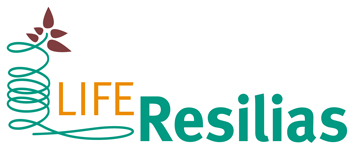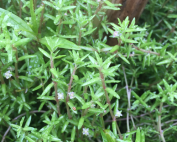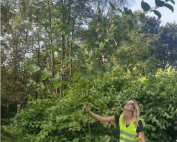
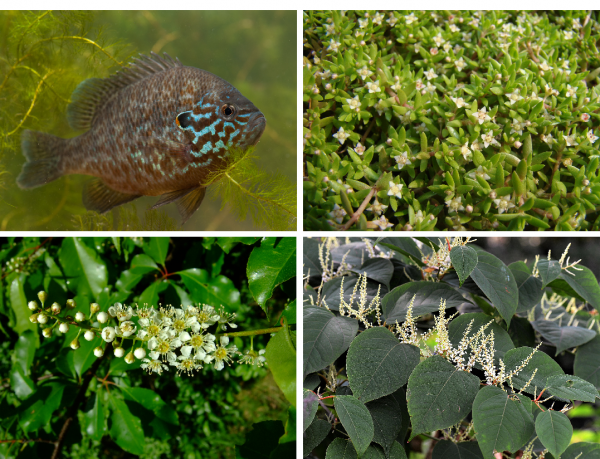
Good news; we can start with the LIFE Resilias project!
Good news came in during the autumn of 2020! The European Union has approved the application for the LIFE Resilias project. This means that, in the next seven years, partners Stichting Bargerveen and Bosgroep Zuid Nederland will be working on system-based nature restoration to prevent the dominance of invasive alien species (IAS). We will do this together with managers, owners, policy developers and other stakeholders. The aim of the project is to strengthen the resilience of ecosystems in forest and nature areas, so that they are better able to resist the dominance of invasive alien species.
Opportunities and chances of an ecosystem resilience approach
We show what the opportunities and possibilities are for strengthening the resilience of ecosystems in forest and nature areas in such a way that invasive alien species do not have a chance to threaten the native flora and fauna; the Ecosystem Resilience Approach (ERA. This is a unique approach because it places the emphasis on the proper functioning of existing ecosystems, instead of constantly combating alien species. We now know that fighting IAS not only is extremely time-consuming and costly in many cases, but that it is not a long-term solution to control widespread invasive alien species. With the ecosystem resilience approach, we give the alien species a place in the ecosystem, but without causing significant damage to the system and biodiversity.
Looking for the weak spot of the invasive alien species
The essence of LIFE Resilias is to demonstrate the ecosystem resilience approach, the advantages of this approach, how the method can be used in practice and what this means for nature management and the translation into policy. The project team will work on this over the next seven years, together with managers, owners, policy developers and other stakeholders. In this way, we will use a broadly applicable method to increase the resilience of ecosystems effectively and efficiently. By doing that the ecosystems will be strong enough to counteract the dominance of invasive alien species.
By looking for the weak spots of the alien species, you can respond to these weaknesses and strengthen the ecosystem so that it can prevent the alien species from dominating. For example, by introducing native species that can compete with the alien species, because they take away something that the alien species needs to be successful. Such as sufficient light to be able to grow and spread quickly.
This approach is not only more effective, but also more natural. After all, no poison is needed and the use of machinery and manpower can be kept to a minimum in the long run. We simply help nature to get going, which makes the ecosystems more diverse and resilient. As a result, the system is strong enough to hold its own, despite the presence of invasive alien species. The increased resilience also reduces the chance of ecosystems being threatened by new invasive species, such as the tree of heaven.
Four example species
In this project we work with four example alien species in different habitats;
- Asian knotweed (Fallonia Japonica) in brook valleys and grasslands
- Australian swamp stonecrop (Crassula helmsii) in wetlands
- Black cherry (Prunus serotina) in forests
- Pumpkinseed sunfish (Lepomis gibbosus) in wetlands
The essence of LIFE Resilias is demonstrating the ecosystem approach, the benefits of this approach, how to use the method and what that means for management and translation into policy. The project team will work on this over the next seven years, together with managers, owners, policy developers and other stakeholders. In this way, we will use a sustainable and broadly applicable method to increase the resilience of ecosystems effectively and efficiently. So that in the future they will be powerful enough to counteract the dominance of alien species.
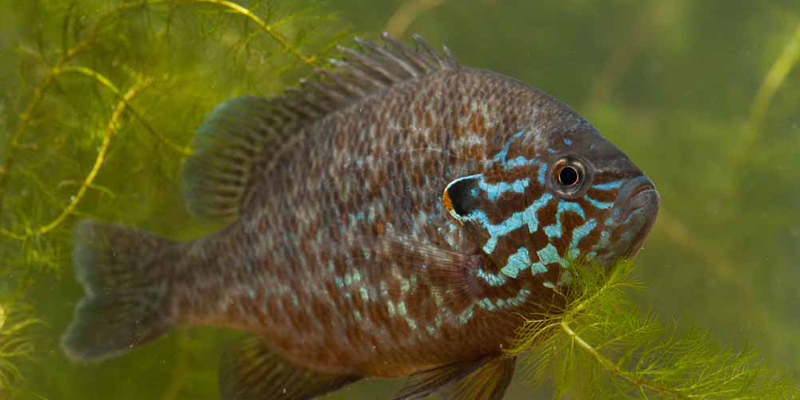
Made possible by the European Union and our sponsors
Project LIFE Resilias is possible thanks to the European Union and has received funding from the LIFE programme.
In addition, Rijkswaterstaat and the provinces of Noord-Brabant, Utrecht and Zeeland have committed themselves to the project as sponsors.
Good news; we can start with the LIFE Resilias project!
Good news came in during the autumn of 2020! The European Union has approved the application for the LIFE Resilias project. This means that, in the next seven years, partners Stichting Bargerveen and Bosgroep Zuid Nederland will be working on system-based nature restoration to prevent the dominance of invasive alien species (IAS). We will do this together with managers, owners, policy developers and other stakeholders. The aim of the project is to strengthen the resilience of ecosystems in forest and nature areas, so that they are better able to resist the dominance of invasive alien species.
Opportunities and chances of an ecosystem resilience approach
We show what the opportunities and possibilities are for strengthening the resilience of ecosystems in forest and nature areas in such a way that invasive alien species do not have a chance to threaten the native flora and fauna; the Ecosystem Resilience Approach (ERA. This is a unique approach because it places the emphasis on the proper functioning of existing ecosystems, instead of constantly combating alien species. We now know that fighting IAS not only is extremely time-consuming and costly in many cases, but that it is not a long-term solution to control widespread invasive alien species. With the ecosystem resilience approach, we give the alien species a place in the ecosystem, but without causing significant damage to the system and biodiversity.


Looking for the weak spot of the invasive alien species
The essence of LIFE Resilias is to demonstrate the ecosystem resilience approach, the advantages of this approach, how the method can be used in practice and what this means for nature management and the translation into policy. The project team will work on this over the next seven years, together with managers, owners, policy developers and other stakeholders. In this way, we will use a broadly applicable method to increase the resilience of ecosystems effectively and efficiently. By doing that the ecosystems will be strong enough to counteract the dominance of invasive alien species.
By looking for the weak spots of the alien species, you can respond to these weaknesses and strengthen the ecosystem so that it can prevent the alien species from dominating. For example, by introducing native species that can compete with the alien species, because they take away something that the alien species needs to be successful. Such as sufficient light to be able to grow and spread quickly.
This approach is not only more effective, but also more natural. After all, no poison is needed and the use of machinery and manpower can be kept to a minimum in the long run. We simply help nature to get going, which makes the ecosystems more diverse and resilient. As a result, the system is strong enough to hold its own, despite the presence of invasive alien species. The increased resilience also reduces the chance of ecosystems being threatened by new invasive species, such as the tree of heaven.
Four example species
In this project we work with four example alien species in different habitats;
- Asian knotweed (Fallonia Japonica) in brook valleys and grasslands
- Australian swamp stonecrop (Crassula helmsii) in wetlands
- Black cherry (Prunus serotina) in forests
- Pumpkinseed sunfish (Lepomis gibbosus) in wetlands
The essence of LIFE Resilias is demonstrating the ecosystem approach, the benefits of this approach, how to use the method and what that means for management and translation into policy. The project team will work on this over the next seven years, together with managers, owners, policy developers and other stakeholders. In this way, we will use a sustainable and broadly applicable method to increase the resilience of ecosystems effectively and efficiently. So that in the future they will be powerful enough to counteract the dominance of alien species.

Made possible by the European Union and our sponsors
Project LIFE Resilias is possible thanks to the European Union and has received funding from the LIFE programme.
In addition, Rijkswaterstaat and the provinces of Noord-Brabant, Utrecht and Zeeland have committed themselves to the project as sponsors.
Latest news
Experiences with tackling knotweed in stream valleys
Rob van der Burg is an ecologist at Bosgroep Zuid Nederland and co-responsible for implementing, monitoring and evaluating the ecosystem approach to [...]
ICAIS symposium
This week the ICAIS symposium takes place in Halifax, Canada. This symposium focuses on the latest scientific knowledge surrounding aquatic invasive exotic species. Experts [...]
Interesting developments in the ecosystem approach to Japanese knotweed
On roadsides, things seem to be going in the right direction with the ecosystem approach to Japanese knotweed. Since 2021, Janneke van der [...]
